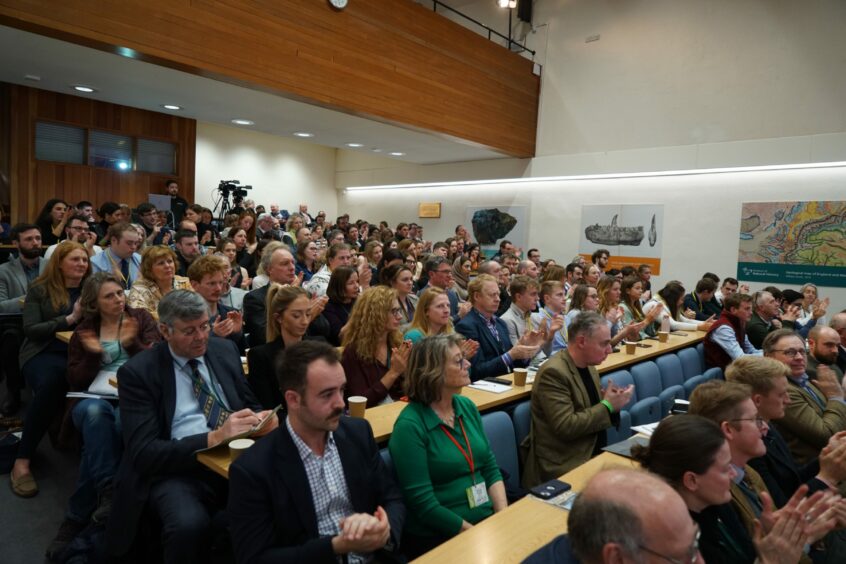English producers were rewarded with an announcement on new farm payments on the first day of the Oxford Farming Conference, but Scottish farmers were told they’d have to wait months for any detail on future policy.
Rural Affairs Secretary, Mairi Gougeon, delivered a pre-recorded speech about local food, but the Scottish Government’s interim Director of Agriculture, George Burgess, who was on the platform, was questioned on when farmers north of the Border could start to plan for the future.
To the accompaniment of sniggers from the audience, he said: “The easy thing would be to sit in St Andrew’s House and just design a policy and put it out there.
“What we’re trying is the more tricky, which is co-production with industry and stakeholders, so there is a lot of discussion and argument – some of it quite heated – but we’re getting through the process.
“So its slower than south of the Border, but in the next couple of months there will be more detail rolled out in the scheme in Scotland.”
Meanwhile, Defra Farming Minister, Mark Spencer told the conference that English farmers are to get increased payments of up to £1000 for protecting and boosting nature under the new “sustainable farming incentive” (SFI).
There will also be an average increase of 10% in payment rates for English farmers who are in Countryside Stewardship agreements for ongoing work such as maintaining bird-friendly seed margins, creating scrub habitat, and managing upland grass areas to provide habitat for bugs and ground-nesting birds.
And payments through one-off grants for activities such as creating hedgerows, rewetting peatland, and reducing farmyard runoff under the Countryside Stewardship scheme will also increase by an average of 48%.
The announcement follows demands from the industry for more clarity on the new Environmental Land Management scheme (Elms) regime to pay farmers for “public goods” such as healthy soils, habitat creation and clean water.
In a familiar refrain, National Farmers’ Union (NFU) vice president David Exwood said farmers are having to make “crucial long-term decisions that are essential to running viable and profitable food producing businesses” without the clarity needed on schemes and options.
“While some of these latest changes are welcome…it risks being too little too late, especially given the current economic challenges we are experiencing and the rapid erosion of direct payments,” he said.












